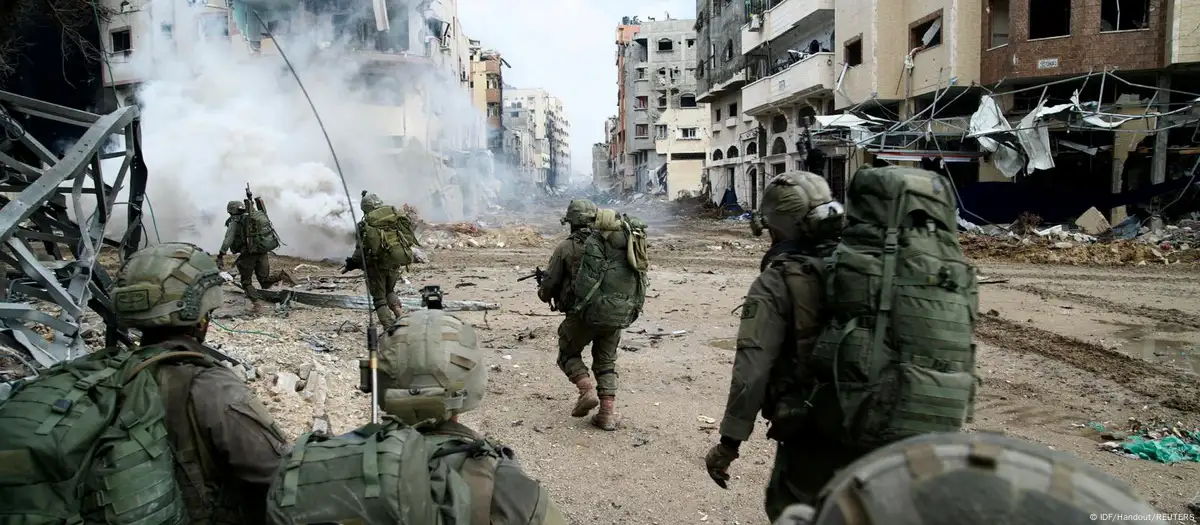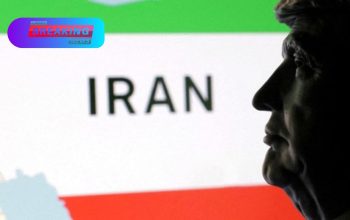Israel expands military attacks by launching new strikes on Deir al-Balah, a central Gaza city previously spared from heavy fighting. On July 21, tanks and troops advanced into the southern and eastern districts for the first time. This movement followed Israeli orders for tens of thousands of residents to evacuate quickly. Subsequently, witnesses reported massive overnight airstrikes and shelling that struck homes and mosques across the city. The Israeli military targeted Hamas infrastructure while searching for possible hostage locations. Previously, Israeli officials said they avoided Deir al-Balah because they suspected hostages might be held there.
The ground assault and air raids forced many Palestinians to flee west and south quickly. At dawn, residents found pamphlets ordering evacuation. Within hours, tanks rolled into the area. Locals reported Israeli bulldozers and armored personnel carriers flattening buildings during the advance. Aid agencies highlighted that two U.N. guesthouses and a World Health Organization warehouse in Deir al-Balah suffered strikes despite their known locations. Later, WHO confirmed Israeli forces damaged and looted its main warehouse. They also raided the staff residence and detained several employees.
Civilian Casualties and Infrastructure Damage
The attacks caused dozens of civilian casualties. Local health authorities and media reported that Israeli shelling killed at least three people and wounded many others in Deir al-Balah on Monday. The Gaza Health Ministry said over 130 Palestinians were killed and more than 1,000 wounded across Gaza in the 24 hours surrounding the incursion – one of the deadliest 24-hour periods in months. The previous day saw at least 134 killed in Gaza, including many women and children. Overall, Gaza’s official health authorities report that the war has now killed over 59,000 people since October 2023.
The casualties included entire families and aid workers. For example, medics reported that an airstrike on a tent in Khan Younis, further south, killed a husband, wife, and their two young children. Another strike on a Gaza charity’s food distribution point left dozens dead last weekend. Images from Deir al-Balah show relatives mourning children killed by bombardment. In total, health officials say hundreds of civilians have been killed at aid convoys and distribution sites, one of the largest losses of life among food-seekers in this war. The destruction of buildings was widespread: collapsed homes, damaged clinics, and flattened mosques littered the area after the strikes. The United Nations office for humanitarian affairs noted that any damage to warehouses, medical clinics, and even a key desalination plant in Deir al-Balah will have life-threatening consequences for Gaza’s population.
Israel Expands Military Attacks, Worsening Gaza’s Humanitarian Crisis
The offensive into central Gaza worsened an already dire humanitarian crisis. Deir al-Balah became a major hub for displaced Palestinians and aid because much of it remained intact. Israeli orders forced 50,000–80,000 people to evacuate, declaring about 88% of Gaza a conflict zone. The U.N. reports roughly 2.1 million civilians crowded into only 12% of Gaza, overwhelming schools and hospitals. Basic services collapsed, and shortages of food, water, and medicine reached extreme levels.
Aid agencies warned of starvation long ago, and fighting in Deir al-Balah raised these fears further. The World Food Programme stated Gazans face a new level of desperation, risking lives to get food. Gaza’s Health Ministry reported at least 19 deaths from starvation in one day, including children. Hospitals run out of fuel and food; doctors cannot feed even babies in intensive care. One doctor said hunger weakened staff and patients so much that many cannot work. The World Health Organization confirmed its facilities faced damage and raids, crippling health efforts. U.N. officials reported 96% of medical equipment is nonfunctional, and clinics lack oxygen and medicines. The UN Secretary-General expressed shock over worsening humanitarian conditions, warning lifelines are collapsing.
Many Gazans remain cut off from aid. Reports describe desperate crowds at the border gates and distribution points. International monitors say that so far more than 800 civilians have been killed seeking food in Gaza during the war. A joint statement by Western nations decried Israel’s “drip feeding” of aid into Gaza and urged immediate steps to open supply lines. The Israeli military says it is trying to facilitate aid entry, but aid workers say restrictions and red tape persist. The siege of Gaza, combined with repeated attacks on aid routes, has left stockpiled food rotting just outside Gaza while people inside starve.
Israel Expands Military Attacks: International Reactions and Political Fallout
The extension of hostilities into central Gaza drew swift international response. Foreign ministers from 25 countries—including Britain, France, Canada, and others allied with Israel—issued a joint statement demanding an immediate end to the Gaza war. They condemned the horrifying killing of civilians, noting that over 800 Palestinians had died while seeking aid. The ministers called Israel’s humanitarian policies inhumane and warned they were fueling regional instability. The statement accused Israel of denying essential assistance and violating international law, threatening further action to support a ceasefire. Israel’s government rejected the criticism, calling the statement disconnected from reality and blaming Hamas for perpetuating the conflict. U.S. and Israeli officials said the letter unfairly blamed Israel rather than focusing on Hamas.
United Nations officials also decried the violence. The UN Secretary-General publicly appealed for an end to attacks on civilians and aid workers. U.N. spokespersons reiterated that all relief sites are inviolable and must be protected regardless of evacuation orders. The WHO Director-General called for the release of detained aid staff and insisted that medical facilities and supplies be spared. U.N. humanitarian chief, visiting Gaza, noted that Deir al-Balah now hosts many of the last functioning aid warehouses and stressed that U.N. teams would stay “to the end of the line” there.
Israel Expands Military Attacks: Regional Impact and Future Challenges
Regionally, the Gaza offensive has tense implications. Israel says the Deir al-Balah push aims to pressure Hamas and find hostages held in Gaza. Prime Minister Netanyahu has tied Israeli advances to hopes for the return of civilians taken by Hamas last October. Families of Israeli hostages have already expressed anger at the new operation, demanding explanations from Israeli leaders. The Hostages Families Forum warned that the people of Israel will not forgive anyone who knowingly endangered the hostages by military actions in the area.
In Gaza, Hamas officials denounced the Deir al-Balah attack. A senior Hamas source said that the mounting death toll and hunger crisis in Gaza could complicate ceasefire talks that mediators are pursuing. Indeed, Israeli media had reported that Hamas was close to a truce deal when the offensive began. Analysts say the new assault may harden Hamas’s position and further delay any pause in fighting.
Meanwhile, the broader Middle Eastern context remains volatile. Egypt has stressed that Gaza’s Rafah border is open for aid but has resisted moves by armed activists to enter Gaza. Other Arab states have also condemned the growing civilian toll. Some critics note that the assault on Deir al-Balah – the main humanitarian corridor – could trigger pressure for a wider regional response if the crisis deepens.
As of mid-2025, Israel’s Gaza campaign has displaced nearly the entire Palestinian population of Gaza and turned much of the territory into ruins. The expansion into Deir al-Balah marks a new phase in the nearly two-year-long conflict. With winter approaching and resources running out, Gaza’s humanitarian needs are now at their highest. Political leaders face mounting international pressure to revive negotiations, but with trauma and distrust on all sides, the path to peace remains unclear.



